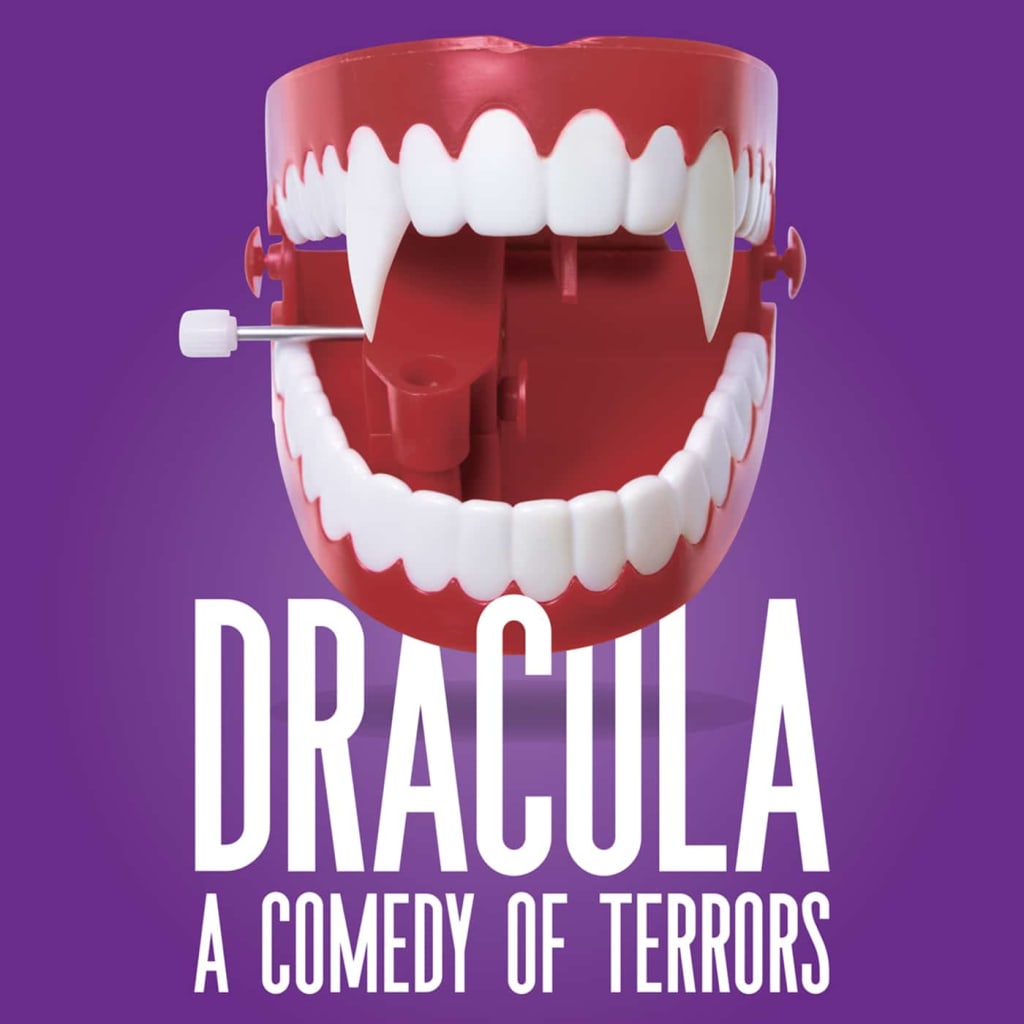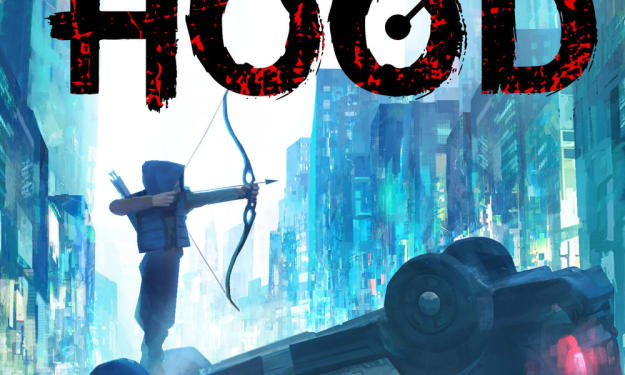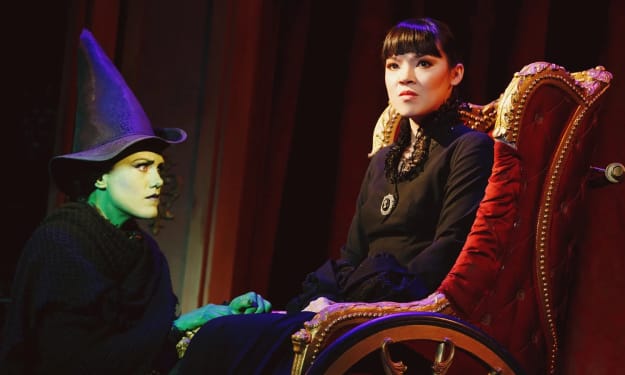Dracula: A Comedy of Terrors Review
A Comedic Podcast Based on the Dracula Story...

Broadway may be closed until Summer 2021, but many of the writers and directors who work there have created several projects to keep Broadway fans entertained. Podcasters Broadway Podcast Network have released a variety of podcast miniseries in a radio serial format, including Dracula: A Comedy of Terrors. A four part comedy series (You can listen to each part separately, or the whole thing as an omnibus episode) released in May and available on most major podcast services, its lighter take on the Dracula story provides a Halloween option for those not keen on being too scared. Greg Greenberg and Steve Rosen wrote the script, with Greenberg directing. Dracula: A Comedy of Terrors began life as a play in 2018 and is available for licensing in that format. The cast for the podcast version includes of some of Broadway’s best and brightest, including Christopher Sieber (Shrek: The Musical, The Prom) James Monroe Iglehart (Aladdin: The Musical, Tangled: The Series), Alex Brightman (School of Rock, Beetlejuice: The Musical), Laura Benanti (Gypsy. My Fair Lady), Ashley Park (The King and I, Mean Girls) and Annaleigh Ashford (Sunday in the Park With George, Wicked) as well as Disney regulars Richard Kind (Inside Out) and Alan Tudyk (Wreck-It Ralph, Frozen), and sitcom icon John Stamos (Full House).
Storyline
Estate agent Johnathan Harker (voiced by Jeff Kready) travels to Transylvania to complete a property deal with the sinister vampire Count Dracula (voiced by Christopher Seiber). When he returns, he prepares to celebrate his engagement to the adventurous Lucy Westfeldt (voiced by Ashley Park). After seeing Johnathan’s photos of her, Dracula becomes obsessed with Lucy, and heads to England, where he arrives at an engagement party hosted by Lucy’s eccentric father Dr Westfeldt (voiced by James Monroe Iglehart). During the party, Dracula bites Lucy’s underappreciated sister Mina (voiced by Annaleigh Ashford) and persuades Westfield’s mentally unstable servant Renfield (voiced by Alex Brightman) to assist him. As Mina succumbs to increasingly vampiric urges, Johnathan, Lucy and Dr Westfeldt are forced to seek the help of the eccentric Jean Van Helsing (voiced by Laura Bentani) in order to find a cure. Will the meek Johnathan find the courage to vanquish Dracula and impress Lucy?
Review
Vampire-based horror comedy is nothing new, and several retellings of the Dracula story have tried to adopt a comedic slant. Love at First Bite and Dracula: Dead and Loving It are the two most notable examples, and neither are among the great retellings of the Dracula tale. Using the podcast format should be an advantage for Dracula: A Comedy of Terrors. Sound is a particularly good medium for comedy, as the lack of visuals encourages a form of exaggeration that lends itself well to silly and surreal entertainment, and the focus on dialogue means eccentric characters and memorable quips carry greater weight. Unfortunately, whilst Dracula: A Comedy of Terrors has a few amusing moments, it is a relatively weak comedy serial which fails to make the most of its talented cast.
Most of the problems with Dracula: A Comedy of Terrors are based on Greenberg and Rosen’s script. However, it still has a reasonable selection of moments which work pretty well. Any good audio comedy needs a selection of memorably awful one-liners, and Dracula: A Comedy of Terrors has a few (Dracula: “I like my women B-Positive!” Harker: “Yes, Well she’s quite the optimist.”) One of the most surreal quips is early on, as Harker claims that being in Transylvania terrifies him “like Margaret Thatcher at a dental convention” - There is something amusing about the idea that one of Britain’s scariest politicians fears dentists as much as everyone else in country famous for its poor dental work. Fourth wall jokes are kept at a minimum (with only a few in the final episode), and we get some deliberately anachronistic humour about Uber, Alexa and healthy eating trends. However, the only two jokes that truly elicit a big laugh occur in the third episode – Renfield’s overlong scream after jumping out of a window, and Mina singing the “Trololol song” during an Exorcist-style sequence of body possession. Aside from these moments, the dialogue ranges from mildly amusing, to boring. There is nothing inept about the script, but there is not enough creative or exciting material.
Unsurprisingly for a show produced by the Broadway Podcast Network, there are a handful of musical related jokes, such as Harker’s failed attempts to reassure himself with lines from “Favourite Things” and a reference to Mamma Mia! during the London-set climax. It is difficult not to regard Renfield’s bug-eating tendencies as an allusion to Alex Brightman’s role as the titular “Ghost with the Most” in the Beetlejuice musical. These jokes will amuse Broadway fans, but casual listeners are unlikely to take much of an interest. Considering the incredible singing abilities of the cast, the fact that there is barely any musical content in the serial is really frustrating.
A major source of inspiration for Dracula: A Comedy of Terrors is probably Bleak Expectations, the BBC Radio 4 series which spoofed the works of Charles Dickens. However, Bleak Expectations had a go-for-broke sense of lunatic anarchy which really generated plenty of laughs, and Dracula: A Comedy of Terrors is too polite for that. The only real overlap between the two is a running joke about Dr Westfeldt’s casual sexism, similar to the over the top insults of women frequently displayed by the male characters in Bleak Expectations. However, Dracula: A Comedy of Terrors doesn’t take it anywhere near as far. Instead of being so over-the-top offensive that it becomes funny, it just feels somewhat bland and cliched. The other touchstone is Young Frankenstein, which was adapted into a musical in 2007. The Mel Brooks classic benefitted from large amounts of visual humour and slapstick and stayed far closer to the feel of the classic scary story, getting way with sillier humour by maintaining the gravitas of the 1931 Frankenstein film. It is a bit unreasonable to expect Dracula: A Comedy of Terrors to live up to the standard of those two more professional productions, but it should have done a better job honouring their manic energy, as there are too many instances where it feels slow and unengaging. It is possible that Dracula: A Comedy of Terrors works best in its original live format, with the physical gestures of the actors and the live audience providing extra entertainment, but the podcast version isn’t sharp enough to make up for this deficiency.
Dracula: A Comedy of Terrors follows the basic outline of the Dracula story. The first episode depicts Johnathan being introduced to Dracula and the sinister count heading to England. The second depicts Dracula arriving at Lucy’s engagement party. The third sees Jean Van Helsing arriving to investigate Mina’s sickness. The fourth and final episode depicts the final fight against Dracula. In a genre where plot is often irrelevant, this clear structure makes things easy to follow, but it reduces the opportunity for the outlandish flights of fancy which could have improved the comedy. The sound design keeps the gothic feel, but Dracula: A Comedy of Terrors is too light and silly to maintain the atmosphere of the source material. Dracula bites a few necks and endangers the health of our leads, but there is never any real sense of jeopardy, and this makes it hard to care whether the characters live or die. There is little that is particularly offensive, save a few tedious sex based jokes, a bit of swearing near the very end, and a questionable bit of random humour when a gravedigger with a very masculine voice casually reveals they are a women. A running joke about the show being sponsored by vampire related products (“This show is brought to you by Blood – It’s in all of us!”) gets tiresome quickly, but ends on a pleasingly harsh note with a dedication to Social Distancing - “if Social Distancing hadn’t happened, this show wouldn’t have happened”. This backhanded way of thanking the COVID-19 crisis for the show is one of the few properly edgy moments. Although Dracula: A Comedy of Terrors is meant to be escapism, this sole overt reference to the current pandemic inspires a much-needed strong reaction.
The lead characters in this sort of comedy tend to be the least funny but should be likeable enough to be worth following. In this respect, Johnathan and Lucy are fine, with relative unknown Jeff Kready (who has spent most of his Broadway career as a stand-by) meeting the challenges of his role as the cowardly posh-boy Johnathan Harker, and Ashley Park providing an effective British accent as the adventurous Lucy. However, whilst they are charming enough to follow for the runtime, it is hard to truly care about their romance, as there seems to be little to them but their contrasting personalities. Christopher Sieber is a competent Count Dracula, with the required Transylvanian accent and sinister stuffiness, but the character who should be one of the major scene stealers feels a bit generic. One of main sources of humour in the series is the fact that the characters are unable to see the obvious signs that there is something odd about the Count, but it wears thin by the third part. The love triangle between them is not particularly exciting, as it is incredibly obvious that Dracula’s attempts to sabotage Johnathan’s relationship with Lucy will not work, and Johnathan will gain the confidence he needs to prove himself a worthy fiancée. Focusing on character comedy does not work if the leads are two-dimensional, and the lack of depth for Johnathan, Lucy and Dracula means that the sections focused on their character development end up being relatively low on comedy, and are thus the worst parts of the podcast.
Whilst the lead characters are a weak link, the supporting cast are the highlight of the series. Disney regular James Monroe Iglehart gives the strongest performance by far as the overly enthusiastic and foolish Dr Westfeldt. He demonstrates that he is one of the most likeable and charismatic Broadway actors in the world today, and really deserves a lead role in the near future. Annaleigh Ashford is amusing as the socially awkward Mina, who has resigned herself to being second-best to Lucy. When Dracula’s bite puts her out of action, her place in the main cast is taken by Laura Benanti, who has an excellent time hamming it up as Jean Van Helsing. Alex Brightman plays the sinister but panicky Renfield, who brings some much-needed wackiness, whilst Kathy Fitzgerald plays kleptomaniac servant Kitty, who should have been given a larger role. Richard Kind makes an amusing cameo as captain of an ill-fated ship, whilst the prolific Alan Tudyk provides the narrations at the end of each episode. Not every cameo works though - John Stamos is wasted as the American Lord Swivelhips, making a series of tired Elvis jokes. The calibre of performers in Dracula: A Comedy of Terrors are why it is justified to provide harsh criticism of a short charity podcast serial. These incredibly talented actors singlehandedly make this production worth listening to and deserve to be in the best podcast possible. That is why it is so annoying that Dracula: A Comedy of Errors falls short of expectations.
Conclusion
Dracula: A Comedy of Terrors has an excellent cast and a handful of clever lines, but it also feels like a bit of a waste of talent. At a short 90 minutes in length, it never becomes truly painful, but it isn’t the glorious rush of madcap escapism that is should have been. For what it is – a comedic podcast to raise money for a good cause and support for some out of work actors – it is fine, but it feels too safe. There’s no harm in checking it out, especially if you are a fan of the people involved, but it isn’t exactly their finest hour. Hopefully, when live theatre returns to its former glory, the likes of James Monroe Iglehart, Ashley Park and Laura Benanti will be able to star in something that truly showcases their formidable talents.





Comments
There are no comments for this story
Be the first to respond and start the conversation.